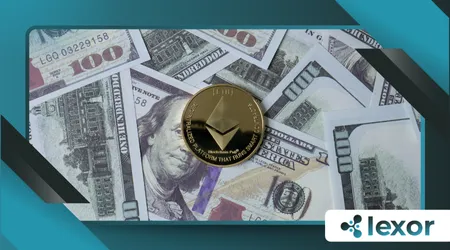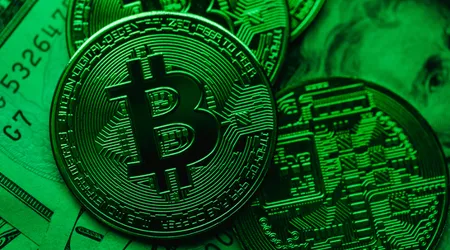How Blockchain is Changing the Way We Think About Money

Blockchain is changing the way we think about money, reshaping financial systems, and challenging traditional notions of value, trust, and ownership.
This revolutionary technology, initially designed to support cryptocurrencies like Bitcoin, has evolved into a transformative force across industries.
From decentralized finance (DeFi) to tokenized assets, blockchain is redefining how we store, transfer, and perceive wealth.
But what makes this shift so profound, and how is it altering our relationship with money?
Let’s dive into the key ways blockchain is rewriting the rules of finance.
As we explore these changes, it’s essential to recognize that blockchain’s impact extends beyond individual transactions.
It has the potential to revolutionize entire economies by fostering transparency and reducing inefficiencies in financial systems.
The Decentralization of Trust
For centuries, financial systems have relied on centralized institutions like banks and governments to facilitate transactions and maintain trust.
Blockchain disrupts this model by introducing a decentralized ledger that operates without intermediaries.
Every transaction is recorded on a public, immutable ledger, visible to all participants in the network.
This transparency eliminates the need for blind trust in third parties, as the system itself ensures accuracy and security.
Consider this: in 2021, the global blockchain market was valued at $4.9 billion, and it’s projected to grow at a compound annual growth rate (CAGR) of 82.4% through 2030, according to Grand View Research.
This explosive growth underscores the increasing adoption of blockchain as a trusted alternative to traditional financial systems.
Moreover, the decentralized nature of blockchain fosters a sense of community among users, as they collectively maintain the network’s integrity.
This shift in trust dynamics can lead to more equitable financial practices, reducing the power of monopolistic institutions.
+ The Top 5 Cryptocurrencies You Should Know About in 2025
Cryptocurrencies: A New Form of Money
Cryptocurrencies are perhaps the most visible manifestation of how blockchain is changing the way we think about money.
Unlike fiat currencies, which are controlled by central banks, cryptocurrencies operate on decentralized networks.
Bitcoin, Ethereum, and other digital assets challenge the very definition of money by offering borderless, censorship-resistant, and programmable forms of value.
For example, Bitcoin’s fixed supply of 21 million coins contrasts sharply with the inflationary nature of fiat currencies.
This scarcity has led many to view Bitcoin as “digital gold,” a store of value immune to government manipulation.
Meanwhile, Ethereum’s smart contract functionality enables programmable money, opening the door to innovations like decentralized lending, insurance, and more.
As cryptocurrencies gain acceptance, businesses and consumers are beginning to explore their use for everyday transactions, further solidifying their role in the economy.
For instance, some companies now accept Bitcoin as payment, signaling a shift towards a more digital economy.
Tokenization: Unlocking New Financial Opportunities
Blockchain’s ability to tokenize assets is another game-changer.
Tokenization involves converting physical or digital assets—such as real estate, art, or even intellectual property—into digital tokens on a blockchain.
These tokens can then be traded, fractionalized, or used as collateral, democratizing access to previously illiquid markets.
For instance, a $10 million piece of real estate can be tokenized into 10,000 tokens, each representing a $1,000 share.
This allows smaller investors to participate in high-value markets, fostering greater inclusivity and liquidity.
Additionally, tokenization can streamline processes such as ownership transfers and asset management, reducing costs and increasing efficiency.
As more assets become tokenized, we may see a shift in how investments are approached, with greater emphasis on accessibility and transparency.
Decentralized Finance (DeFi): The Future of Banking?
DeFi is one of the most exciting developments in the blockchain space, offering a decentralized alternative to traditional banking services.
Built on blockchain platforms like Ethereum, DeFi applications enable users to lend, borrow, trade, and earn interest without intermediaries.
The growth of DeFi has been staggering.
In 2020, the total value locked (TVL) in DeFi protocols was just $1 billion.
By 2023, that figure had surged to over $50 billion, according to DeFi Llama.
This rapid adoption highlights the demand for financial services that are more accessible, transparent, and efficient.
Moreover, DeFi platforms often offer higher interest rates than traditional banks, attracting users seeking better returns on their investments.
As the DeFi ecosystem matures, regulatory scrutiny is likely to increase, prompting discussions about how to balance innovation with consumer protection.

Blockchain and Financial Inclusion
One of the most profound impacts of blockchain is its potential to promote financial inclusion.
According to the World Bank, approximately 1.4 billion adults remain unbanked, lacking access to basic financial services.
Blockchain technology can bridge this gap by providing low-cost, accessible financial tools to underserved populations.
For example, blockchain-based remittance services allow migrant workers to send money across borders quickly and affordably, bypassing traditional banking systems.
Similarly, decentralized identity solutions can help individuals establish credit histories, enabling them to access loans and other financial services.
Furthermore, by lowering transaction fees and increasing the speed of transfers, blockchain can empower individuals in developing regions to participate in the global economy.
This potential for financial inclusion is not just a theoretical benefit; it can significantly improve the quality of life for millions of people worldwide.
++ Smart Contracts: A Comprehensive Guide for Beginners
Challenges and Criticisms
Despite its promise, blockchain is not without challenges.
Scalability, energy consumption, and regulatory uncertainty remain significant hurdles.
For instance, Bitcoin’s proof-of-work consensus mechanism has been criticized for its environmental impact, though many projects are transitioning to more sustainable alternatives like proof-of-stake.
Moreover, the decentralized nature of blockchain can make it difficult to resolve disputes or recover lost funds, raising questions about consumer protection.
As the technology matures, addressing these issues will be crucial to its long-term success.
In addition, the complexity of blockchain technology can be a barrier to entry for many users, necessitating ongoing education and outreach efforts.
As awareness grows, it will be essential to ensure that users understand both the benefits and risks associated with blockchain.
The Road Ahead
Blockchain is changing the way we think about money, but its full potential is still unfolding.
As the technology continues to evolve, it will likely integrate with other innovations like artificial intelligence, the Internet of Things (IoT), and quantum computing, further transforming the financial landscape.
The key to realizing this potential lies in collaboration between technologists, regulators, and businesses.
By fostering an ecosystem that balances innovation with accountability, we can harness blockchain’s power to create a more inclusive, transparent, and efficient financial system.
Moreover, as blockchain applications expand into sectors such as healthcare and supply chain management, the overall impact on society could be profound.
This collaborative approach will be essential in addressing regulatory challenges while ensuring that blockchain technology serves the public good.
Tables: Blockchain Adoption and DeFi Growth
Table 1: Global Blockchain Market Growth
| Year | Market Size (USD Billion) | CAGR (%) |
|---|---|---|
| 2021 | 4.9 | 82.4 |
| 2025 | 39.7 | 82.4 |
| 2030 | 394.6 | 82.4 |
Table 2: Total Value Locked (TVL) in DeFi Protocols
| Year | TVL (USD Billion) |
|---|---|
| 2020 | 1 |
| 2021 | 100 |
| 2022 | 200 |
| 2023 | 50+ |
Conclusion
Blockchain is changing the way we think about money, offering a paradigm shift in how we store, transfer, and perceive value.
From cryptocurrencies and tokenization to DeFi and financial inclusion, this technology is redefining the rules of finance.
While challenges remain, the potential for blockchain to create a more equitable and efficient financial system is undeniable.
As we navigate this transformative era, one thing is clear: the future of money is being rewritten, and blockchain is at the heart of this revolution.
By embracing innovation and addressing its limitations, we can unlock the full potential of blockchain, ensuring that it serves as a force for good in the global economy.
The question is no longer whether blockchain will change finance, but how quickly and profoundly it will do so.
For further insights into blockchain’s impact, consider exploring CoinTelegraph and The Block, which offer valuable resources and updates on this evolving technology.
